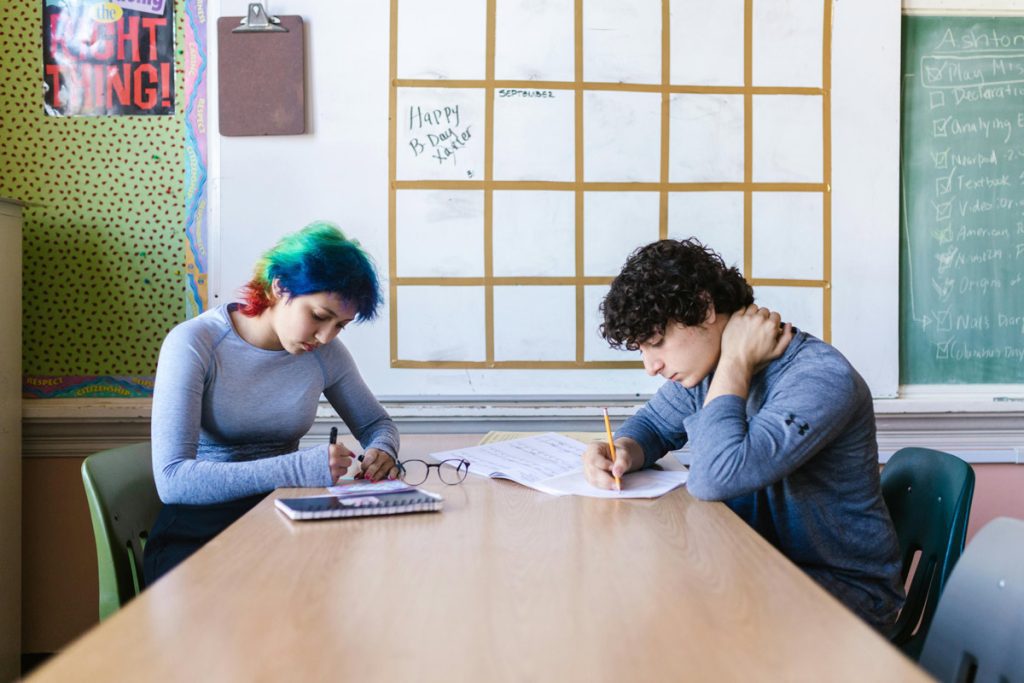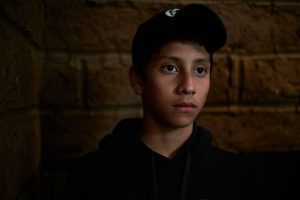Behavioral issues in teens and adolescents are often rooted in underlying mental health challenges. Recognizing this connection enables schools to provide better support for students. When educators and caregivers understand that such behavior is not merely a disciplinary issue but a sign of deeper struggles, they can respond with empathy and appropriate interventions. This approach ensures that students receive compassionate care and support rather than facing punitive measures that may worsen the problem.
Alternative schools play a crucial role by addressing behavioral concerns through dedicated mental health resources and tailored care. By fostering a more supportive environment for growth and healing, these schools provide students with the opportunity to rebuild their confidence and thrive despite previous challenges.
What are alternative schools?
Alternative schools are educational institutions that differ from traditional public or private schools in terms of curriculum, teaching methods, structure, or student population. They are designed to meet the needs of students who may not thrive in conventional school settings. Alternative schools have the freedom to use innovative teaching methods such as experiential learning, flexible schedules, individualized instruction, and specialized support services.
- Charter schools – Publicly funded but independently run, these schools often have unique curricula, individualized attention, and high parent involvement.
- Magnet schools – Public schools with specialized themes (e.g., STEM, arts, international studies) that attract students based on interests.
- Therapeutic boarding schools – Boarding schools that combine education with mental health treatment for students experiencing behavioral or emotional struggles. They provide a more structured environment, therapists, and coaches.
- Vocational or trade schools – Public or private schools that provide students with hands-on training and skills tailored to specific trades or careers.
- Independent progressive schools – These schools value non-traditional teaching methods, such as project-based learning, experiential learning, critical thinking, social-emotional development, and creativity integrated into their curriculum.
- Recovery high schools – These schools integrate addiction recovery support with academics, providing a safe and sober environment where students can learn alongside peers who share similar values.
- Schools for specific learning differences – Boarding and day schools with specialized instructional methods for neurodiversity, dyslexia, dyscalculia, autism spectrum disorder, and slow processing, among others.
Alternative schools offer specialized environments designed to address the complex relationship between behavior and mental health. These schools often feature:
- Smaller class sizes
- Higher teacher/student ratio
- Personalized academic plans
- Integrated therapeutic support
- Trained teachers and staff knowledgeable in mental health awareness
- Unique learning options promoting student engagement and motivation
The CDC reports that nearly 1 in 7 children from ages 3-17 have a diagnosis of some behavioral or mental health condition. In a study of 79,000 children, researchers found that by addressing these behavioral issues earlier in life, future mental health problems can be detected and possibly prevented.
Disciplinary actions are not the solution
Punitive disciplinary measures do not solve the root issues. They will usually worsen emotional distress and academic difficulties. This, in turn, creates more behavioral problems.
By reframing behavioral issues as signs of a deeper underlying need, caregivers and educators can adopt a more empathic and supportive approach. When schools address the root cause through therapeutic methods and personalized learning plans, students experience lasting positive outcomes for themselves.
Community and belonging benefit mental health
Alternative schools prioritize a strong sense of community and belonging, which is often deeply embedded in their daily routines and culture. Shared responsibilities—such as cooking, cleaning, teamwork, mentoring, planning, and creating activities—are integral aspects of these schools.
In boarding school environments, close-knit living arrangements further enhance this sense of unity, as students and teachers often share meals and communal spaces. Teachers may even reside on campus to strengthen connections with students. The culture of these schools is highly valued, as it plays a crucial role in teaching students valuable life lessons about collaboration, empathy, and building relationships with diverse individuals.
Therapeutic schools offer a nurturing environment that helps students rebuild relationships with their families and peers. For students who may have felt isolated or unsupported in traditional school settings, these schools offer a sense of belonging that can be transformative. This inclusive atmosphere helps alleviate feelings of rejection or depression caused by previous isolation, fostering emotional well-being.
By promoting self-awareness and strengthening students’ sense of self-worth, therapeutic schools encourage positive growth while reducing negative behaviors. When students feel safe and understood, they are better equipped to thrive academically, socially, and emotionally.
Targeted specialty learning
In addition to specialized learning and mental health support, alternative schools can provide targeted types of learning:
- Career or technical education such as automotive repair, culinary arts, and construction trades.
- Individual learning plans that match the learning style and interests of each student.
- Arts-based programs such as visual, performance, music, and theater.
- Social-emotional learning through individualized therapy, groups, and experiences to support students’ social and emotional development.
- Outdoor education that incorporates the peaceful, soothing qualities of nature.
- One-on-one education for students who are competitive athletes or performers and need flexibility in their educational schedule.
- Specific supports and teaching methods for students with mental health struggles such as anxiety, obsessive-compulsive disorder (OCD), or substance use.
- Supports and methods for specific learning differences such as dyslexia or autism spectrum disorder.
Real-world learning experiences
Experiences such as internships, community projects, and mentorships appeal to those who would prefer to learn by doing. These practical experiences help students understand the relevance of their education and to excel in real-life experiences outside the classroom.
Alternative schools offer families a powerful solution for addressing behavioral issues through a mental health lens. When students’ emotional and psychological needs are met alongside their academic requirements, it creates a foundation of self-respect and positivity. By incorporating mental health education, community, targeted learning and real-world experiences, students gain long-term emotional wellness and improved behavior.
Students who have struggled in traditional school settings can experience greater emotional safety and understanding in alternative schools. This broad approach supports students academically while also promoting emotional resilience and self-awareness.
About the Author: Rae Guyer, Therapeutic Consultant, guides and recommends placement options for treatment centers, nature-based therapy, therapeutic boarding schools, and alternative education for adolescents and young adults. You may schedule a no-cost discovery call with Rae Guyer at Therapeutic Educational Consulting to discuss options.
Photo by RDNE Stock project: https://www.pexels.com/photo/two-students-studying-together-8419173/
The opinions and views expressed in any guest blog post do not necessarily reflect those of www.rtor.org or its sponsor, Laurel House, Inc. The author and www.rtor.org have no affiliations with any products or services mentioned in the article or linked to therein. Guest Authors may have affiliations to products mentioned or linked to in their author bios.
Recommended for You
- When the World’s Pain Becomes Your Own: Understanding Secondary Traumatic Stress - February 17, 2026
- How to Keep Love Alive: The Balance Between Romance and Routine - February 12, 2026
- The Power of Peer Support: How Young Adults Navigate Mental Health Recovery Together - February 9, 2026







